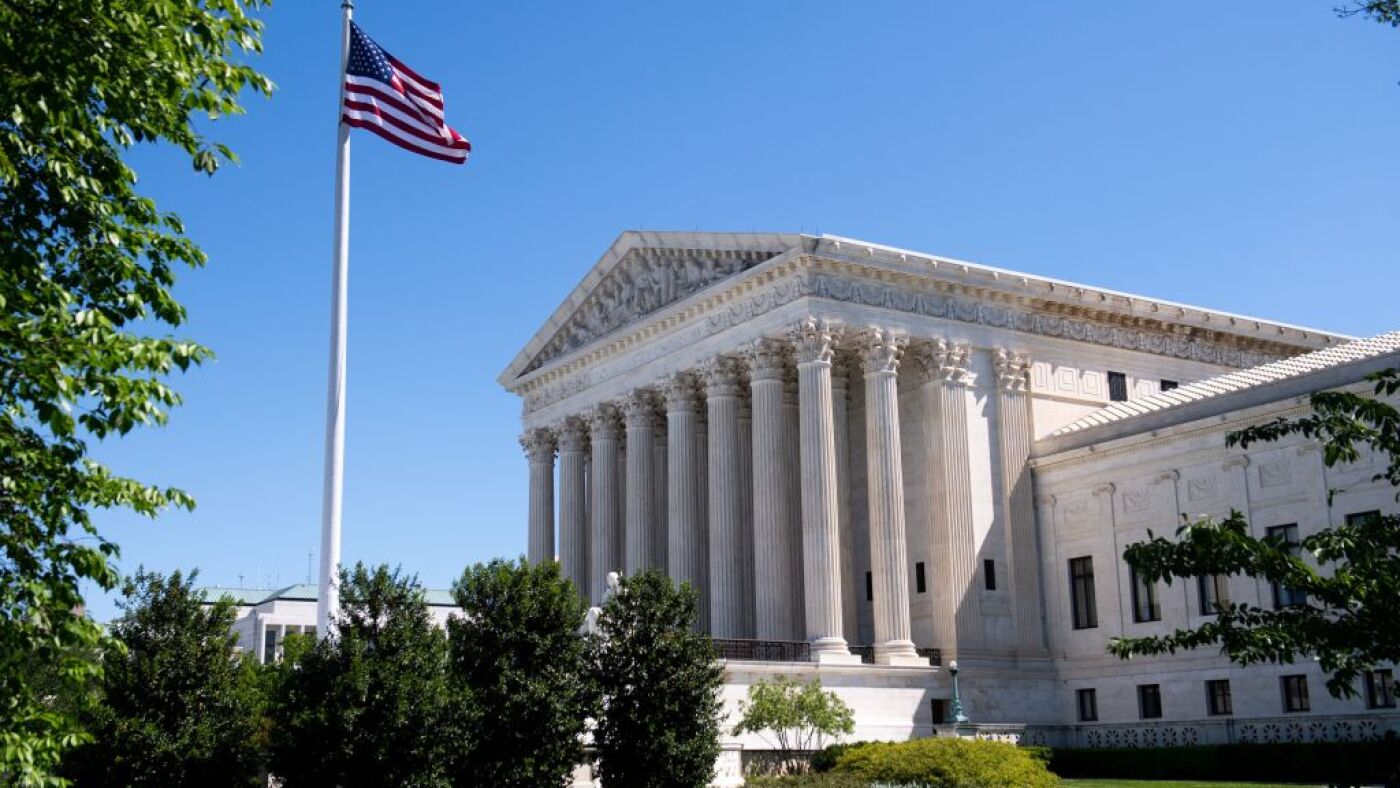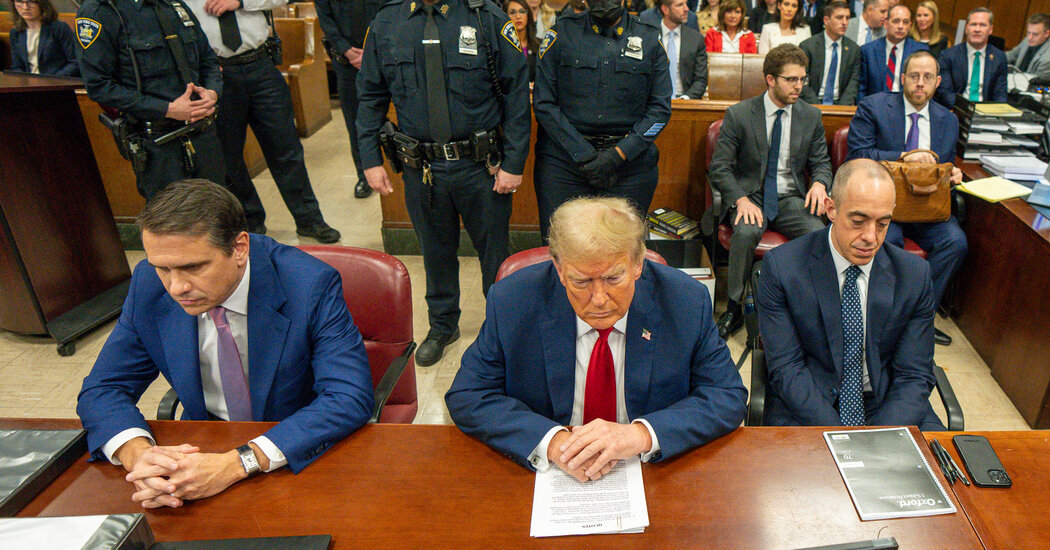The U.S. Supreme Court has upheld a major offshore tax on investors.
Saul Loeb/AFP/Getty Images
hide caption
toggle caption
Saul Loeb/AFP/Getty Images
The U.S. Supreme Court on Thursday ruled against a couple who challenged the constitutionality of a Trump-era tax provision, handing the government a victory in a case that had huge potential consequences for the federal budget.
At issue was a tax enacted in 2017 to pay for President Donald Trump’s massive corporate tax cut and to prevent off-shore tax dodges. It was challenged by Charles and Kathleen Moore, who were required to pay a one-time $15,000 tax on an investment in India that grew in value from $40,000 to over a half million dollars.
Backed by conservative anti-regulatory groups, the couple claimed that because they had received no payments or dividends from the company, there was no income to be taxed. And they maintained that the tax violated the 16th Amendment to the Constitution, enacted in 1913, which authorizes Congress to collect taxes on income.
This tax, they maintained, was not on income, and thus was unconstitutional.
But the Supreme Court disagreed by a vote of 7-2, with Justice Brett Kavanaugh writing for the court’s majority. He was joined by Chief Justice John Roberts, Justices Amy Coney Barrett, Samuel Alito, Elena Kagan, Sonia Sotomayor and Ketanji Brown Jackson. Justices Neil Gorsuch and Clarence Thomas dissented.
Although on paper the case appeared obscure, it had potentially trillions of dollars in tax consequences for the federal budget, and an adverse decision could have severely limited congressional options in enacting tax policy.
Indeed, former Republican House Speaker Paul Ryan, who shepherded the tax through the House of Representatives, warned that if the tax were invalidated, it could unravel a third of the tax code.
Congress enacted the tax as a one-time payment to cover the transfer from one international tax rule to another. Under the old system, if you earned foreign income overseas in a foreign corporation that you owned, you would not have to pay taxes on those earnings until you brought the profits back to the United States. Congress saw that as a perverse incentive to keep profits offshore, and by some estimates as much as $3 trillion in income was shielded in shielded offshore profits.
In order to move to a new system, the idea was that a one-time transition tax, at a low rate, was needed. For the Moores, their one-time tax was $15,000, coincidentally roughly the amount Charles Moore was reimbursed for travel expenses when he went to India for board meetings.
Tax law experts from conservative to liberal were greatly relieved by Thursday’s decision. Remember, this tax is expected to yield $340 billion by 2027, mainly from huge corporations, and the lion’s share of those taxes has already been collected, and likely would have had to be paid back if the court had reached a different conclusion.
What’s more, various other tax regimes enacted to prevent tax dodges by the rich could also have been at risk, according to George Callas, who served for 15 years as a Republican staffer for the tax writing committees of Congress.
In the Moores’ case, they owned 11% of the Indian company, and under federal law, that is considered a controlling interest, meaning the owners have influence over the timing of any distributions and dividends, a leverage that Congress wanted to rein in to prevent tax avoidance.
Lawyers for the couple described them as playing no active role in the company. But documents disclosed by the publication Tax Notes show that Charles Moore was far more involved in the company’s management than he suggested. Records show he served on the board of the company for five years between 2012 and 2017, that he was reimbursed for thousands of dollars in travel expenses to and from India, and perhaps most importantly, that he provided the company with short-term infusions of cash that were never used, but were repaid 60 days later with 12% interest. Former congressional tax staffer Callas sees that as clearly “suspicious.”
“Why would you loan a company money for 60 days, have it sit in a bank account, never be used, and then repay it with a big interest rate, unless you were just trying to find a way to get money out of the company without calling it that?” Callas says.
That said, a phalanx of conservative, anti-regulatory, and anti-tax groups was arrayed against the tax in Thursday’s case, including the U.S. Chamber of Commerce — even though the group supported the 2017 tax bill that included the provision at issue in Thursday’s case.
Callas, who served as Speaker Ryan’s chief tax counsel at the time the bill was negotiated and passed, notes that at the request of the Chamber and other stakeholders, House Republicans made many specific changes to the 2017 tax bill, but there was “no discussion” of any “constitutional vulnerability.” It was “purely a discussion of how to design the policy appropriately.”
For the Chamber and other stakeholders years later “to discover constitutional concerns that they didn’t raise before, “strikes me as opportunistic,” he said in an interview with NPR last December.
The case was widely viewed by advocates on both sides as a preventive strike against any wealth tax of the kind proposed by Sen. Elizabeth Warren, D-Mass. Not that anyone thinks such a tax has any chance of passing in Congress. In his majority opinion, Kavanaugh wrote: “Those are potential issues for another day, and we do not address or resolve any of those issues here.”

